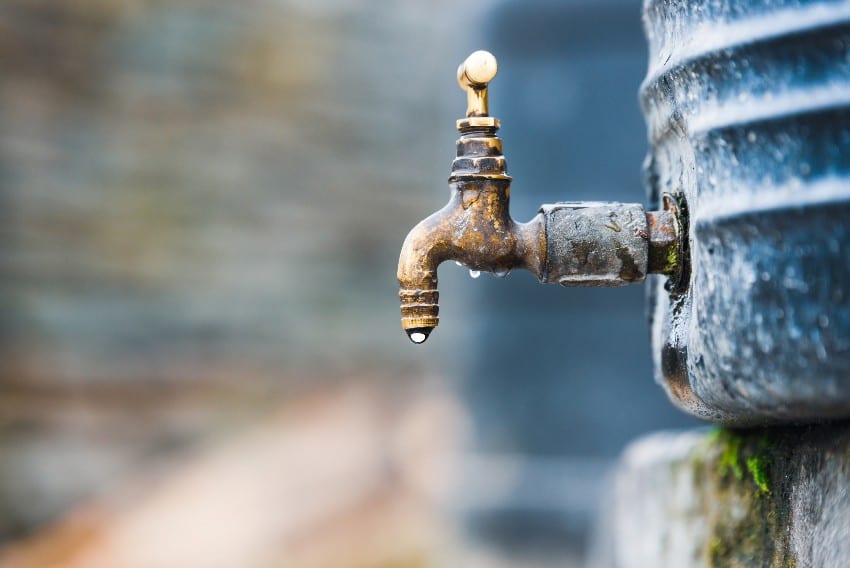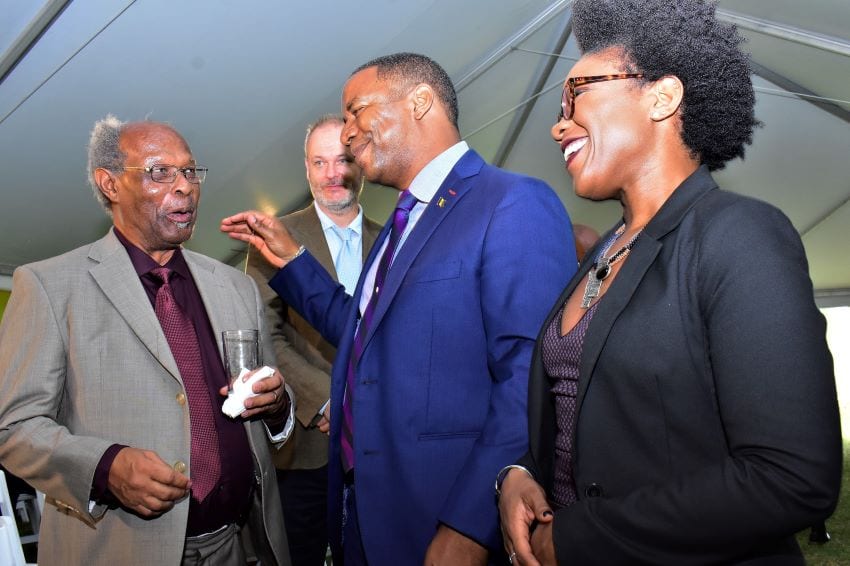
The way Barbadians think about water has to change!
Minister of Energy and Water Resources, Wilfred Abrahams, made this assertion at the inaugural launch of the Water Sector Resilience Nexus for Sustainability in Barbados (WSRN S-Barbados) Project at the Bowmanston Pumping Station in St. John.
He insisted that the mindset of Barbadians towards the value of water must change.
“It is not sufficient for us to reduce our energy cost, it is not sufficient for us to reduce our carbon footprint, it is not sufficient for us to harvest more water, our whole approach to water has to change. We need to start to treat it [water] as the scarce and valuable commodity that is”, Minister Abrahams emphasized.
Barbados’ water infrastructure is ‘aged’ with some pipes dating back to the 1850s. This old system experiences a high rate of ruptures, in the 29 to 59 per 100km annually.
He stated: “The current problem of leakages and faulty mains is a serious cause for concern for Barbados and Barbadians especially as Barbados is classified as one of the 15 most water scarce countries in the world; therefore, making every drop of water a precious resource.”
Stating that Barbados has the cheapest rate of water in the world, and yet Barbadians complain bitterly for every cent they pay, Minister Abrahams declared the WSRN S-Barbados Project is a ‘big deal’.
He explained that it is the goal of government to “keep the water in Barbados cheap while trying to educate people as to its scarcity…we have to do our part to keep the cost of water affordable, so that every sector of our society, including and especially the most vulnerable, always have access to clean, safe, dependable water and an efficient delivery service.”
Dependable and efficient delivery of safe water is one of the main goals of the WSRN S-Barbados Project.
Through the accredited entity Caribbean Community Climate Change Centre (5Cs), the project was submitted to the Green Climate Fund (GCF), and received a mix of grant funding from the GCF totalling US$27.6 million and an additional US$17.6 as in-kind contribution.
The WSRN S-Barbados Project has four components, and is intended to fundamentally change the way Barbados manages it water resources.

Component one is intended to improve and increase resilience to storm events and reduce the Barbados Water Authority’s (BWA) carbon footprint. Component two is expected to expand adaptation and mitigate initiatives through a revolving fund.
The aim of component three is to build resilience to climate change and disruption in water supply, with a specific intent to bring a permanent solution to the parishes of St. Thomas, St. Joseph, St. Andrew and St. John, which have been plagued by water outages and inconsistent water supply. Its final component is designed to improve capacity building and public awareness.
Also speaking at the launch was Minister in the Ministry of Economic Affairs and Investment, Marsha Caddle, who highlighted the Revolving Adaptation Fund Facility (RAFF) as one of the components of the project that holds particular interest to her ministry, which has responsibility for managing government’s public sector investment programme.
She pointed out: “One of the things we have to be able to deliver to households in Barbados and to other sectors of the community is the wherewithal to be able to address for themselves issues of water supply and sustainability and climate resilience…and the RAFF affords such an ability.”
Stressing that the Caribbean was now seven times more likely to be hit by a natural disaster, she pointed out that the average estimated costs to Caribbean economies will rise between five and 30 per cent of Gross Domestic Product in the coming decades.
Minister Caddle said: “It means that it is imperative that we prepare for our future of increasing and unprecedented climate disruption and the risk of climate-related devastation. We cannot delay or postpone the investment individuals, businesses and government need to make to increase resilience and preparedness for the changes in climate.”
She expressed how pleased she was to see the launch of the project and underscored that the future viability, sustainability and prosperity of Barbados depended on investments in projects such as the WSRN S-Barbados Project.

Ms. Caddle said she believes it would save lives and significantly reduce the human and economic costs of natural disaster and climate risk.
Senior Project Development Specialist with the 5Cs, Dr. Donneil Cain, outlined that the project was conceptualized in 2015, and after meeting with the GCF, the project concept was revised and approved in February 2018.
He said the project is expected to last just over five years, and during that time BWA staff will be trained and university students would benefit from internships and practical involvement in the implementation activities.
Dr. Cain revealed some of the benefits of the project, which include: the Queen Elizabeth Hospital moving from its current 36 hours water reserve to 96 hours; 1,500 households with differently abled persons will be a part of the personal tank programme; homes, schools, polyclinics, community centres and farms will benefit from rainwater harvesting; and the Belle, Hampton and Bowmanston pumping stations will receive solar photovoltaic systems and back-up clean energy power to assist in the efficiency of operations if the grid goes offline.
It is expected that once funding for the project has come to an end, costs savings should be achieved. There will be a reduction in operating costs and the generation of income activities.
The BWA should be in a stronger financial position to continue investing in infrastructure renewal, effectively making the BWA as self-sufficient as possible.
The GCF recorded the inaugural launch which will be presented at the UN Climate Summit in New York this September.
